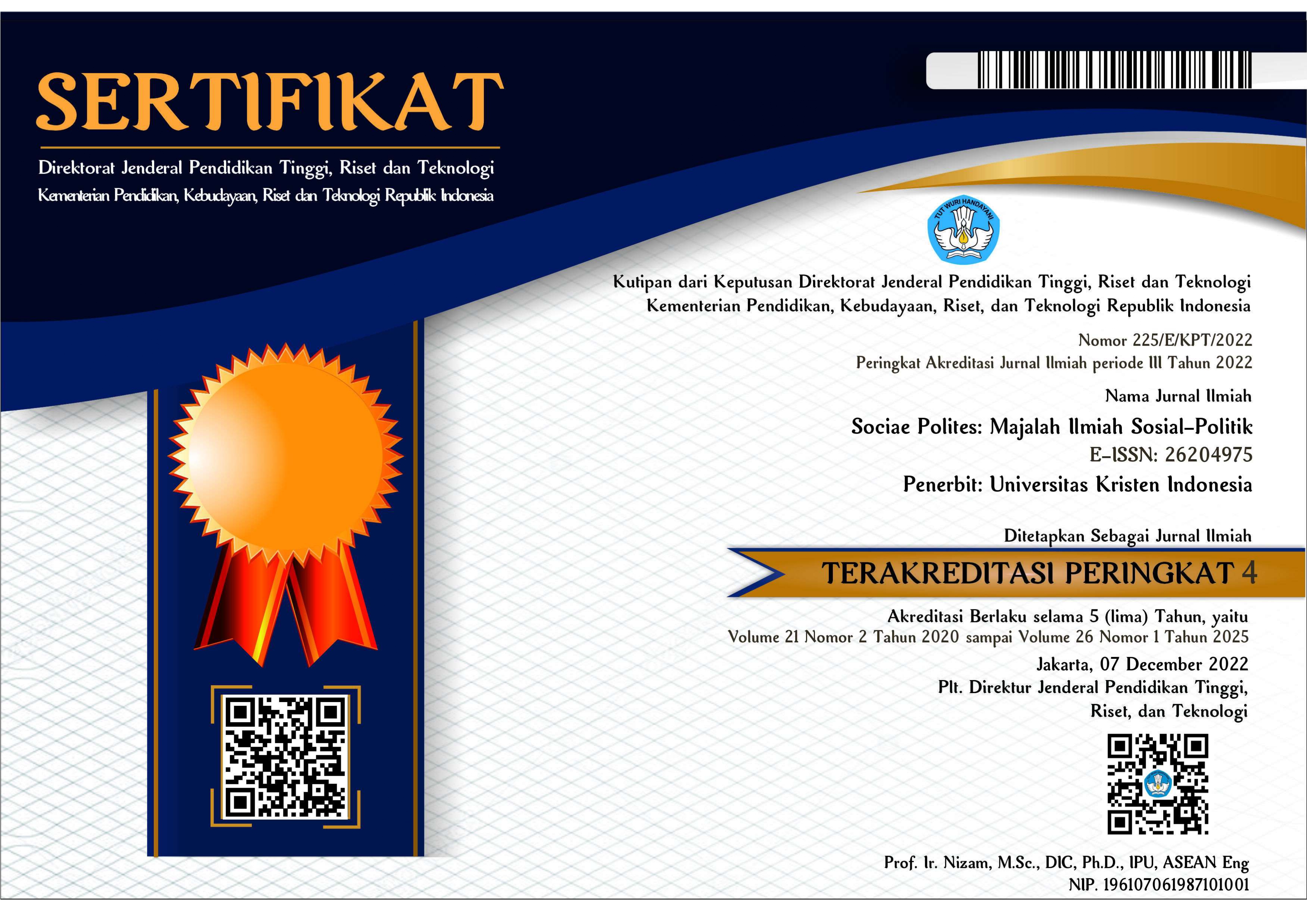QUICK ACCESS
Vol. 26 No. 1 (2025): January-June 2025
Sociae Polites published seven (7) articles in the edition of January-June 2025 (Volume 26 Number 1). The first article is titled "Digital Transformation in Jakarta’s Museums: Leveraging AI and IoT to Optimize Smart Sustainable Tourism" by Veronica. This article discusses how three museums in Jakarta apply AI and IoT to support smart tourism. The study highlights challenges such as limited infrastructure and digital literacy, while proposing a Smart Navigation and Information System to improve visitor experience and cultural preservation.
The second article is titled "Building an Inclusive Democracy: Enhancing Women’s and Youth Political Participation in Indonesia" by Audra Jovani. This article examines barriers to political participation faced by women and youth. It emphasizes the need for inclusive political education, supportive policies, and digital platforms to create a more representative and just democratic process.
Tran Minh Hop, Imelda Masni Juniaty Sianipar, and Jayson Troy Bajar wrote the third article titled "Ruptured Lifeworlds: Industrial Settler Colonialism and the Formosa Steel Disaster in Coastal Vietnam". It interprets the Formosa steel pollution case as a form of industrial settler colonialism that disrupted the lives and cultural identity of coastal communities. The article highlights how affected residents responded with narratives of resistance and calls for environmental justice.
In the fourth article, "Platform-Afforded Transnational Advocacy: Youth and Narrative Strategy of the #StopWillow Campaign", Verdinand Robertua introduces the PATA framework to explain how youth activists shape global climate discourse through digital storytelling. By analyzing social media content, the study shows how emotional narratives can transform visibility into pressure for change, offering a fresh take on transnational advocacy strategies.
Bernadette Holli Kristiani contributes the fifth article, "Pancasila Economic System: A Milestone in Indonesia’s National Economic Development". It explores the legal foundations of the Pancasila-based economic model and its potential to realize social justice. The study finds a misalignment between constitutional ideals and neoliberal practices, urging a return to Pancasila values in law and policy to address inequality and promote collective welfare.
The sixth article is "Autocratic Legalism in the 2024 Elections: Distortions of the Rule of Law in Indonesia’s Democracy" by Alfeus Jebabun. This article analyzes how legal frameworks were used to consolidate power during the 2024 elections. It outlines five key patterns of autocratic legalism and emphasizes the need for reforms to protect judicial independence, civil liberties, and democratic resilience in Indonesia.
Aulia Asmarani and Uud Wahyudin wrote the seventh article titled "Institutional and Cultural Drivers of Reforestation Awareness Among Coffee Farmers: A Case Study in Palintang Village, West Java". This article explores how the Microlot Coffee Program and local coffee production culture influence farmers’ awareness of reforestation. Using a quantitative approach and SEM-PLS analysis of 100 respondents, the study finds that both institutional support and cultural practices significantly contribute to reforestation awareness. The research offers new insight into the socio-cultural dimensions of sustainability in coffee-producing rural communities and provides practical input for agro-environmental policy.


 Sociae Polites: Majalah Ilmiah Sosial Politik
Sociae Polites: Majalah Ilmiah Sosial Politik